At McCallum Place, we are guided by the strength and stories of our patients. One symbol that has taken on deep meaning within our community is the paper crane, representing resilience, healing, and hope.
The Legend of the Thousand Cranes
In Japanese folklore, the crane is a sacred creature believed to live for a thousand years. According to tradition, anyone who folds 1,000 origami cranes—a practice known as senbazuru—will be granted a wish. This ritual is often done during times of illness or challenge, and has come to symbolize perseverance, strength, and recovery.
The story became widely known through Sadako Sasaki, a young girl from Hiroshima who began folding cranes while hospitalized with leukemia. Though she passed away before reaching her goal, Sadako’s story inspired people around the world, and today, paper cranes are recognized as global emblems of peace and healing.
A New Tradition at McCallum Place
While in treatment, one McCallum Place patient folded 1,000 paper cranes, inspired by the folktale and her own journey toward recovery. Her cranes became the foundation of what is now known as our Paper Crane Wall—a growing, visual symbol of the courage and transformation that takes place here every day.
Since then, this tradition has continued. Patients are invited to add their own crane to the wall upon discharge. Each crane represents an individual journey&mdasah;a milestone in healing, a moment of hope, a testament to strength.
By contributing a crane, patients leave behind a piece of their recovery, offering encouragement to those who come after them. The wall stands as a powerful reminder that you are not alone, and that many have walked this path before you—growing, healing, and discovering themselves along the way.
We hope that as you pass the wall, you feel uplifted by the energy of those who came before you—and inspired to add your own symbol of hope for those who will follow.
















